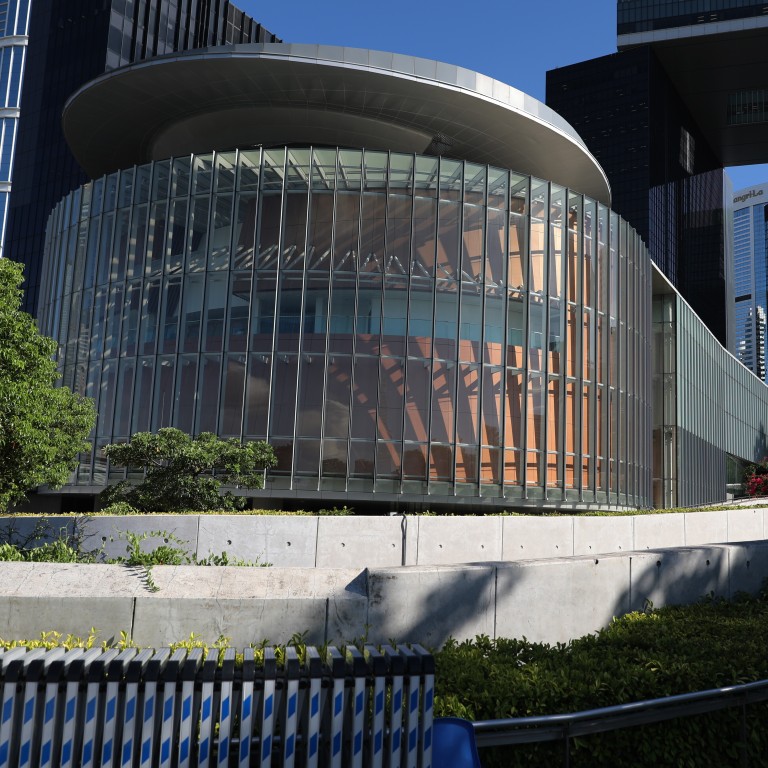
Top Beijing body set to make patriotism mandatory for Hong Kong legislators
- National People’s Congress Standing Committee expected to clarify law requiring public officers pledge allegiance to city and uphold mini-constitution
- Resolution could lead to disqualification of opposition lawmakers, who have threatened to quit en masse
China’s top legislative body is set to make “patriotism” a legal requirement for Hong Kong lawmakers, the Post has learned, in a move that could pave the way to disqualify filibustering opposition legislators.
Sources said the resolution, to be revealed and endorsed by the National People’s Congress Standing Committee (NPCSC) on Wednesday, was expected to refer to the definition of patriotism that late paramount leader Deng Xiaoping made in June 1984, when he said patriots must form the main body of the city’s administrators after the handover from Britain in 1997.
“A patriot is one who respects the Chinese nation, sincerely supports the motherland’s resumption of sovereignty over Hong Kong, and wishes not to impair Hong Kong’s prosperity and stability … whether they believe in capitalism or feudalism,” Deng told local politicians.
Ahead of the deliberations in the capital, 19 opposition lawmakers had threatened to quit en masse if any one of them was disqualified over delaying tactics in the Legislative Council.
Tam Yiu-chung, Hong Kong’s sole delegate to the standing committee, said deputies were warned against disclosing details of the proceedings early.
“I can only discuss it after the meeting ends on Wednesday,” Tam said. “Please understand that.”
The opposition’s bloc’s threat on Monday was in response to the revelation the standing committee had added the issue of disqualification to its agenda and would consider removing lawmakers who were earlier barred from contesting postponed Legco elections originally slated for September.

The article also applies to the city’s chief executive, principal officials, judges and members of the leader’s de facto cabinet, the Executive Council.
“There is a need to give a more specific definition of what actions constitute failing to uphold the Basic Law and failing to bear allegiance to the Hong Kong SAR, so the bottom line will be clearer,” the insider said, adding further changes to the draft were possible.
Deng’s ‘patriotism’ may soon be required for public office. What does the term mean?
According to Xinhua, 163 delegates from around the country attended Tuesday’s meeting, at which they discussed various mainland legislation, but the report made no mention of Hong Kong.
The standing committee last moved to directly define Hong Kong lawmakers’ duties in 2016 when it penalised newly elected, localist lawmakers Sixtus Baggio Leung Chung-hang and Yau Wai-ching for distorting their oaths of office. It issued an interpretation of Article 104 that ruled public officials would have to take their oaths “sincerely” and “solemnly” or face disqualification. Leung, Yau and four other opposition lawmakers were later unseated as a result.
Hong Kong lawmaker suggests opposition’s stalling could violate security law
Chief Secretary Matthew Cheung Kin-chung refused to comment on the opposition bloc’s threat to resign, calling reports that Beijing was mulling disqualifications “speculative”.
But he accused some lawmakers of clearly trying to stall Legco proceedings with quorum calls.
“I hope quorum calls can be made when they’re needed,” said Cheung, who is acting chief executive with Carrie Lam Cheng Yuet-ngor away on an official visit to Macau. “Do not use them to obstruct proceedings, because Legco’s purpose was meant for improving people’s livelihoods and pushing Hong Kong forward.”
A quorum call is a request for a headcount of lawmakers at a debate to see if the number meets representation rules, which can lead to an adjournment.

Cheung was also asked whether he thought Beijing should avoid stepping in, given that such a move could trigger drastic changes to the city’s legislature and criticism from foreign governments.
“We don’t want to see big changes in the legislature, but when the central government and the NPCSC want the lawmakers to continue to perform their duties, it is so Hong Kong can move forward,” he said. “No one wants to see arguments like these.”
Legislative Council president Andrew Leung Kwan-yuen said he had shown maximum tolerance in the chamber, noting lawmakers had made 80 quorum calls in four weeks during debates of bills he viewed as straightforward.
“Lawmakers are allowed to do so under the Basic Law,” Leung said. “Their rights are one thing, but the overall operation of Legco is also an issue we’ll need to deal with. I hope legislators from different parties can adhere to their original intentions to serve the general public.”
Pro-Beijing politicians said the standing committee’s resolution could help spell out which filibustering strategies would not be allowed in future and the decision could come with specific guidelines for enforcement.
But some legal experts were unsure how the resolution could allow for unseating filibustering lawmakers who had properly taken their vows four years ago.
Senior counsel Ronny Tong Ka-wah, a lawyer by trade and member of the Executive Council, said he did not believe quorum calls amounted to paralysing the legislature. While agreeing serious filibustering could be problematic, he said whether it fell afoul of the Basic Law was debatable.
Ideally violations of oath under Article 104 would be defined through local legislation, but pan-democrats had continued to test the central government’s bottom line, Tong said.e.
Democratic Party chairman Wu Chi-wai accused Beijing of attempting to turn Legco into the National People’s Congress, often described by critics as a rubber stamp legislature.
“We have been fulfilling our obligation to examine the bills,” Wu said. “But the central government felt that we have been filibustering. It’s very normal that lawmakers have their own views on different matters.”
Civic Party leader Alvin Yeung Ngok-kiu warned of the impact of Beijing’s resolution on the financial hub’s reputation.
“Hong Kong, as an international financial centre and a developed city, cannot tolerate dissent and voices that are different than that of the government … what message is it sending to the world?” he said.




